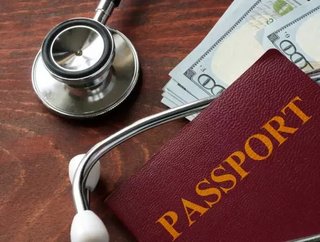The rise of medical tourism is impacting stem cell treatments

There have been worldwide concerns surrounding stem cell therapies, where many patients are seeking unproven treatments in order to further their ongoing treatments in other countries, increasing the figures surrounding medical tourism. Sought in bone marrow and the umbilical cord, stem cells are utilised in the treatment of immune diseases, degenerative diseases and blood cancers, such as leukaemia, as well as ongoing autoimmune conditions.
However, with a growing rise of patients seeking treatments which have yet to be clinically proven, approximately 15 worldwide experts have announced a need to introduce international regulations to ban the practice for medical teams to offer treatments which are yet to be proven successful in areas such as the treatment of blood cancers, such as leukaemia.
Within the US journal Science Translational Medicine, it states: “Approaches for international regulation not only need to develop consistent rules over the commercialisation of medical practices and products but also need to give them teeth by developing cross-border partnerships for compliance.” However, this is made further complicated by countries not having a clear directive surrounding current regulations, besides the treatments, which are placed on different clinical frameworks.
Related Stories
- With rising costs, US hospitals have overlooked how to gain over $20 million in revenue capture
- How are health apps supporting healthcare in India?
- AbbVie, Novo Nordisk and Takeda: profiling the most reputable pharmaceutical companies
The number of patient deaths in seeking unproven therapies has been on the rise in Australia and Russia, to which the health industry seeks to put a block on such ability for vulnerable patients to undertake, or become involved in unproved treatments, increasing their risks of infection and fatalities.
In the journal, it states: “The term 'stem cell' has been used broadly in promises of youth, rejuvenation and good health, as well as in the branding of cosmetics, dietary supplements, and sports products. Such hyperbole carries with it not only an increased risk of exploitation of vulnerable patients and their families desperate for a cure, but also of significant damage to the health of those subjected to these unproven interventions.”
Australia adopts some of the highest number of companies advertising medical treatments, without any evidence that such treatments are safe, let alone produce positive results, The Guardian reports. The Therapeutic Goods Administration is therefore seeking to fully close the regulatory loophole which enables the growth of autologous treatments, and the businesses which cater to this practice.
- Comarch Diagnostic Point Boost for European Health InsuranceHealth Insurance & Finance
- GE Healthcare: Defining the Future of Healthcare TechnologyTechnology & AI
- Kearney Calls for Improved Gender Equity in HealthcareMedical Devices & Pharma
- Top 10: Medical Device AssociationsMedical Devices & Pharma






